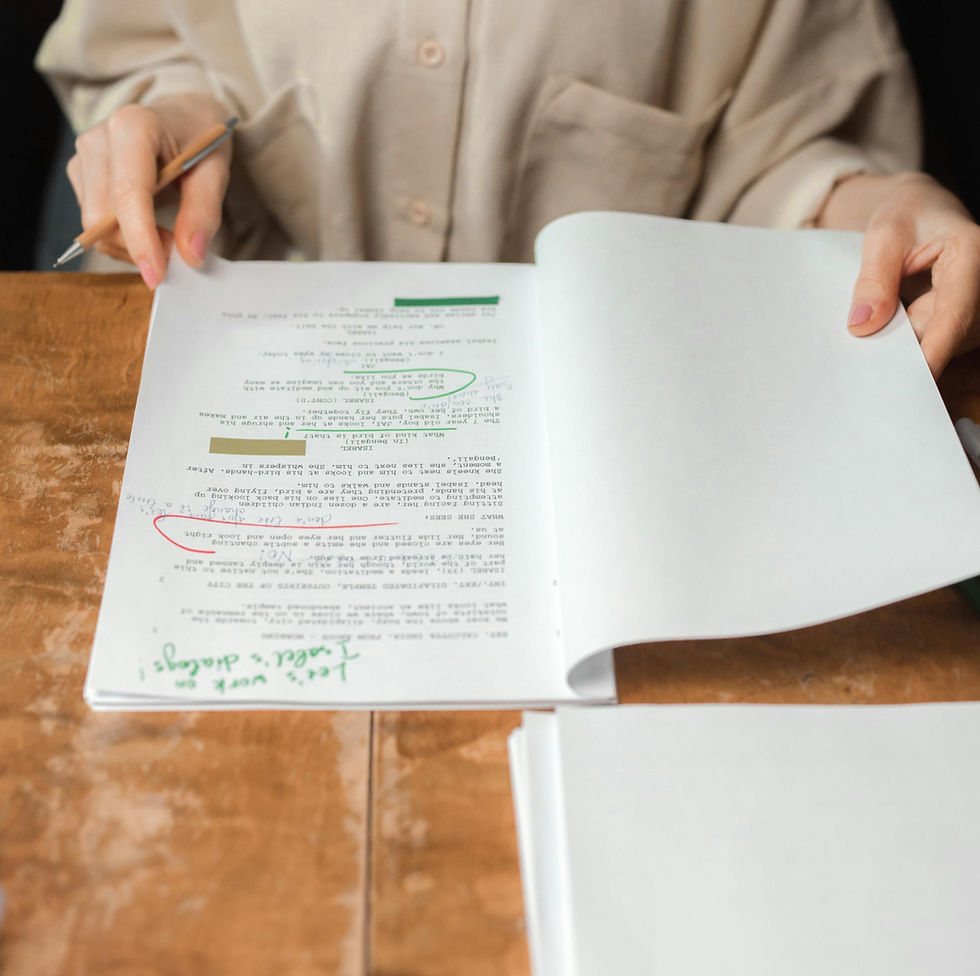What does a TV writers' assistant do?
- Anton Schettini

- Jan 30, 2024
- 3 min read
Updated: Oct 8, 2024

A lot of people who want to break into TV think that a good place to start is to be a writers' assistant. And they're not wrong.
Though, as I explain in this post, this is not an entry level job, and you'll likely need to work as a Production Assistant or an assistant elsewhere before you can get a writers' assistant job.
Still, a TV writers' assistant a great way to get yourself into the writers' room, start networking with writers, and see how a TV show is made from the ground up.
So, let's talk about what the hell it means to be a writers' assistant. And we'll start with what a writers' assistant is not...
A TV writers' assistant is not a writer's assistant (note the apostrophes)
Some writers, particularly showrunners, who are the head writers of TV shows, have assistants. Those people are called either assistants, showrunner's assistants, or executive assistants.
Their jobs involve more typical assistant duties - taking charge of their boss's calendar, answering phones, personal duties, stuff like that.
But the writers' assistant job that you want, which will get you into a writers' room, is a whole different ball of wax.
They still report to the showrunner, just like everyone else, but their main job does not involve any typical assistant duties.
Typical duties of a TV writers' assistant
The writers' assistant is the one in the writers' room taking notes while the writers discuss story ideas, character moves, episode ideas, etc.
Anytime the writers are in the room talking, a writers' assistant is right there taking notes. Then, at the end of the day, the writers' assistant will compile the notes that the room discussed for the day.
This involves a bit of cutting a pasting so that the important parts of what was discussed is moved to the top of the document using their carpal-tunnel-addled hands.
The notes are then sent out to the writers at the end of the day so everybody can go over the previous day's discussion and prepare pitches for the upcoming day.
In TV dramas, there is a clear delineation of duties between the writers' assistant and the script coordinator.
The writers' assistant takes care of notes and occasionally research and the script coordinator handles all script editing, formatting, and distribution of each individual draft.
However, in TV comedies, the line between writers' assistant and script coordinator is blurred, and the job duties often switch off.
Therefore, in TV comedies, writers' assistants often have to go "on screen."
Going "on screen"
When revisions are made to a script in TV comedies, the script is pulled up on Final Draft on a computer which is hooked up to two big TV monitors in the writers' room, and the writers get to work.
But the writers are just dictating what needs to change. The writers' assistant or script coordinator is actually physically making the changes in the script.
The showrunner is generally the one who dictates the changes, but it can come from other high-level writers as well.
This is the most difficult task you have as a writers' assistant, because the whole writers' room is watching you type and scrutinizing every mistake you make all day long.
And it ain't easy.
The showrunner needs to be clear, which they're often not. And it's hard to keep up this level of concentration for long periods of time.
That being said, this experience often affords you the possibility to pitch. The showrunner is talking to you all day anyway, so you have their attention.
This is a great opportunity to show that you're a good writer too and pitch some jokes or storylines.
Be careful when picking a TV writers' assistant job
I was a writers' assistant for many years.
Some of the cruelest things I've seen happen in TV workplaces happened between showrunner and writers' assistant.
However, some of the greatest things that can happen to assistants, which oftentimes is getting a freelance script (or a script given to someone outside of the regular writing staff), happens primarily to writers' assistants and script coordinators.
This gives you a serious writing credit and a big fuckin' pay day.




